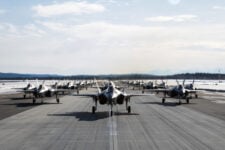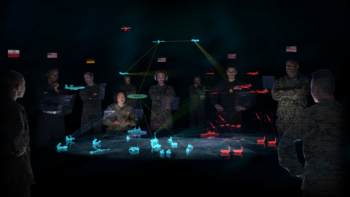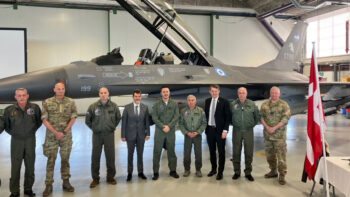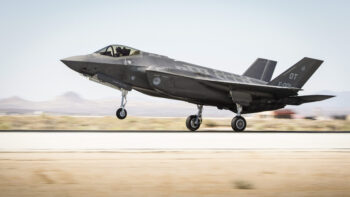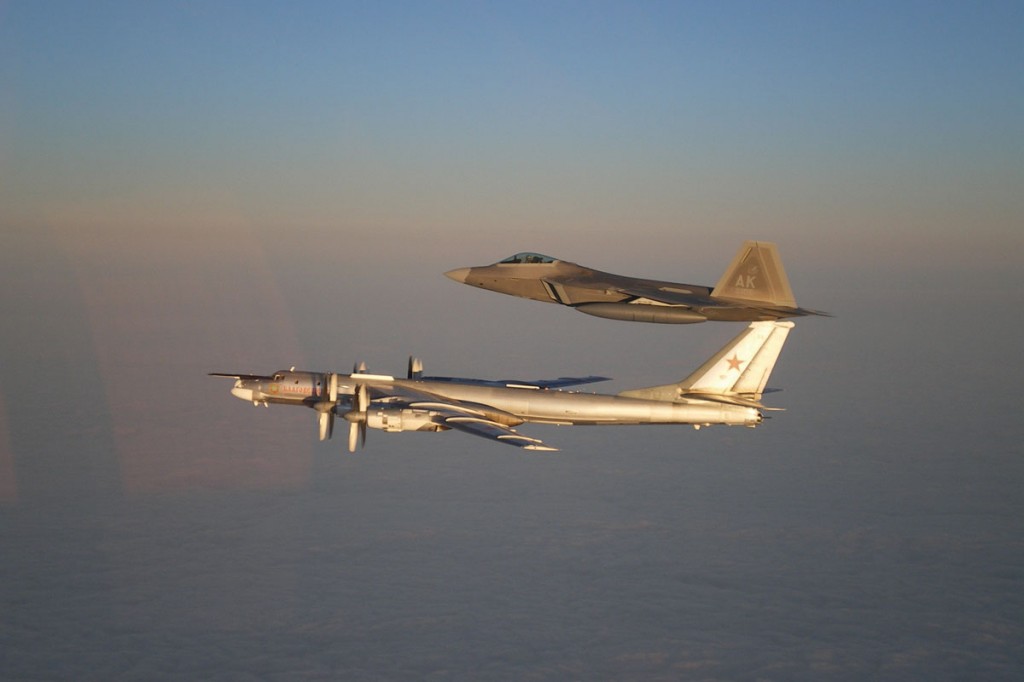
WASHINGTON: NATO‘s supreme commander is on a pilgrimage to the Pentagon to ask for three things. Gen. Philip Breedlove wants more intelligence support, more naval power, and continued focus on the Russian threat to Europe. That’s tricky at a time when the Russian intervention in Syria — where the US will now send special operations teams — is dominating headlines and decision-makers’ agendas.
“Right now, I am concerned that folks have taken their eye off of Ukraine a little bit because of Syria,” Breedlove told reporters at the Pentagon this morning. It’s similar, he said, to how the world lost focus on the Russian annexation of Crimea — which the US still considers Ukrainian territory — after Russian proxies invaded eastern Ukraine, triggering the current war. Fighting in the Donbass region has died down, he said, but skirmishes continue and Ukrainian territory remains under Russian occupation with no withdrawal in sight.
“We need to be thinking holistically about our response to Russia,” Breedlove said, rather than chasing one crisis after another after another. Syria, Donbass, Crimea, Georgia in 2008, Estonia in 2007, Tuesday’s fly-by of the carrier USS Reagan by Russian warplanes in the Pacific, similar aerial provocations that “continue all around the perimeter of Russia” — they’re all pieces of a larger strategic puzzle.
Unfortunately, it’s a puzzle we don’t understand all that well, as shown by our total surprise when Russian forces showed up in Syria. Since the Soviet Union collapsed, the US intelligence community has kept a fairly close eye on Russian strategic forces — i.e. their nuclear arsenal, which we feared would be sold to or stolen by terrorists — but not on their operational or tactical-level military maneuvers, such as the conventional-forces movements into Ukraine and Syria.
“We have a lack of ability to see into Russia, especially at the operational and tactical level,” Breedlove said. “We have kept a good focus on the strategic level across the years.”
For example, he said, we’re very aware of Russia’s latest test of a ground-launched cruise missile — in potential violation of the increasingly tattered Intermediate Nuclear Forces (INF) treaty — and we’re not letting it slide. “Sept. 2nd is not the first time we’ve seen testing that look like it violates the INF, and we have been discussing this with them for some time now,” Breedlove said.
But the operational and tactical intelligence assets naturally focused for 15 years on Afghanistan and Iraq, where US troops were fighting and dying. Now, however, the pendulum is beginning to swing back.
“We are not where we need to be now and the IC [intelligence community] is addressing it,” he said. “The IC has made some fairly dramatic changes in the last several months.”
It’s a slow process. “We are gently turning the nose of this ship,” he said. “It will take some time.”
“[There] is an annual cycle of how this is allocated; that’s happening in the building now,” Breedlove said. “It’s one of the reasons I’m back here this week, is to work this issue in the building.” (“The building” is military shorthand for the Pentagon).
Breedlove’s also here to ask for more naval power, he said. That’s to balance a Russian buildup in the Black Sea — anchored on newly fortified Crimea — and in the Mediterranean — anchored on Russian missile systems deployed into western Syria.
Unlike ground and air forces, Breedlove said, his naval forces have actually been growing. Four Aegis destroyers have been permanently assigned to European command, based on out of Rota, Spain. While upgraded and originally intended to conduct ballistic missile defense, the destroyers remain multi-mission warships able to patrol, hunt submarines, strike land targets, or fight an enemy fleet. Already, Breedlove said, he has used them to “demonstrate freedom of action in the Black Sea and other places which the Russians would like to say is denied for us.”
Sailing US warships where potential adversaries don’t want them — the Black Sea with Russia, Subi Reef with China — is an increasingly significant kind of strategic signaling. The question is whether signaling will be enough.
Connecticut lawmakers to grill Army, Lockheed about job cuts at Sikorsky helicopter unit
“The Connecticut delegation has questions about why, with that [FY24] appropriation in hand, this happened,” said Rep. Joe Courtney, D-Conn.












